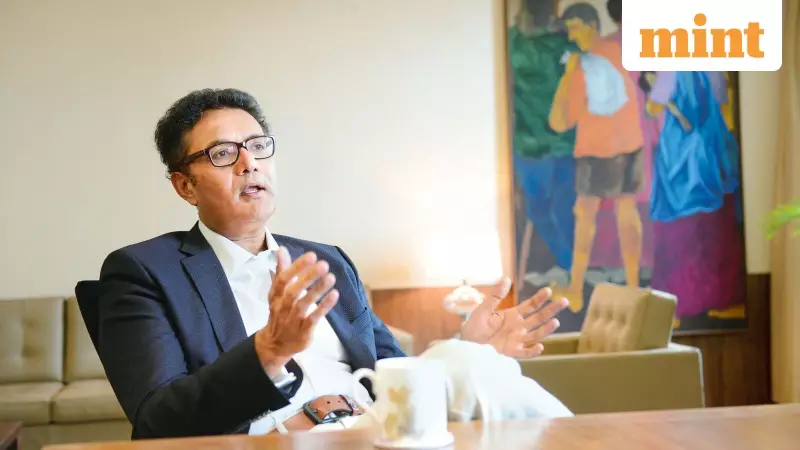
India's Consumer Sector Faces Leadership Revolution
India's once-stable consumer goods and retail industries are experiencing unprecedented leadership churn as companies grapple with technological disruption and intense competition from new-age brands. What was traditionally known for long-serving CEOs and steady management is now witnessing a wave of top-level changes across fast-moving consumer goods (FMCG) and retail sectors.
Recruiters and former CEOs confirm that mounting pressure on executives to safeguard market share, counter digital-native competitors, and deploy technology across operations is driving this transformation. Market observers point to structural changes reshaping the industry landscape.
The Driving Forces Behind CEO Exodus
Sunil Duggal, former CEO of Dabur India who served nearly two decades before stepping down in 2019, explained that the operating environment has transformed dramatically during and after the pandemic. "During my tenure, the operating environment changed, but not as much as today," Duggal noted.
The emergence of quick commerce and digital marketing has fundamentally altered business requirements. Quick commerce alone contributed nearly a third to online FMCG sales in India, which surged 56% to Rs 9,800 crore in the year ended May, according to Worldpanel by Numerator data.
Company boards are now pushing for generational leadership changes. "Boards feel it's time for a new generation of CEOs who can connect with the youngsters of today—in terms of marketing, advertising, and distribution," Duggal emphasized.
Recent Leadership Changes Across Major Companies
The consumer sector has witnessed significant management reshuffles in recent months:
- Hindustan Unilever appointed Priya Nair as CEO and managing director effective August 1, 2025, following Rohit Jawa's departure after just over two years
- Britannia Industries named Rakshit Hargave as managing director and CEO effective December 15, 2025, with Varun Berry stepping down after 13 years
- Castrol India announced managing director Kedar Lele's exit effective December 31, 2025, just a year after his November 2024 appointment
- L'Oreal India appointed Jacques Lebel as country manager on October 2, replacing Aseem Kaushik who moved to a chairman role
The retail sector shows similar patterns with Arvind Fashions, Bestseller India, Pepe Jeans, and Puma India all witnessing leadership changes in recent months.
Changing Consumer Behavior and Market Pressures
The leadership churn coincides with challenging market conditions. Discretionary spending remains under pressure, especially in urban markets. Hindustan Unilever reported flat volumes in its September quarter, citing high food inflation, challenged incomes, and weather vagaries.
Ravi Kapoor, retail and consumer goods leader at PwC India, highlighted additional pressures: "Household debt levels have really gone up—to 42% of GDP by the end of last year, which was roughly half that around nine years back."
Consumer behavior has shifted fundamentally. A recent Deloitte report reveals that over 70% of Indian consumers rely on digital channels, with online marketplaces significantly influencing purchase decisions. While offline stores remain relevant (53%), peer recommendations (51%) and social media ads (49%) also shape spending patterns.
Anand Ramanathan, partner for consumer and retail at Deloitte India, explained: "The traditional way of defining the FMCG target audience—say, a typical housewife between the age of X and Y—no longer holds. There needs to be a deeper appreciation of millennial and Gen Z shoppers."
New Leadership Skills in Demand
The changing landscape demands different leadership capabilities. Yeshab Giri, chief commercial officer at Randstad India, noted: "In India, with an average age of around 28 years, people are extremely digitally savvy. They may not necessarily walk into a store. So you need leaders who are equally digital."
Rituparna Chakraborty from True Search India highlighted that understanding the direct-to-consumer (D2C) playbook has become non-negotiable for FMCG leaders. Performance pressure has intensified dramatically, with transformation timelines shortening and shareholders showing limited patience.
Duggal acknowledged that the era of 15-20 year CEO tenures has ended. "It's a good thing. The industry needs leaders who can navigate this new world, not just those who can preserve the old one," he concluded, signaling that this leadership transformation marks a necessary evolution for India's consumer sector.






